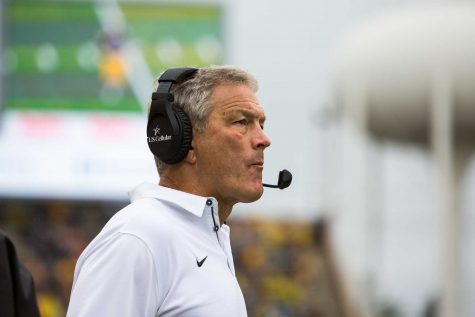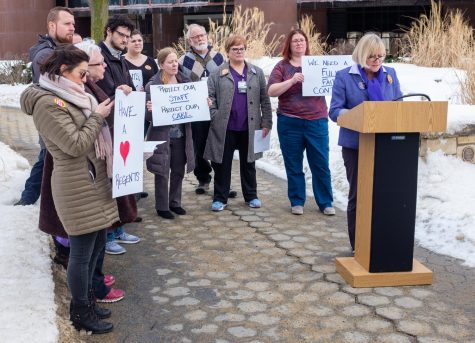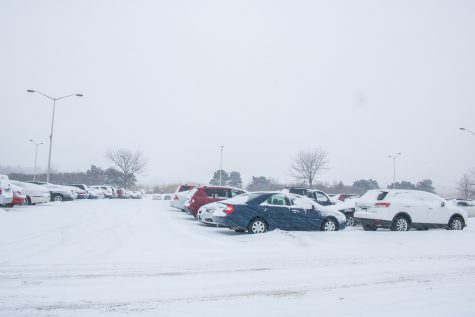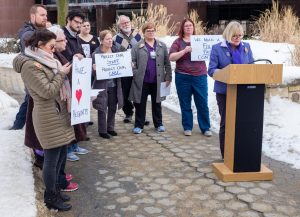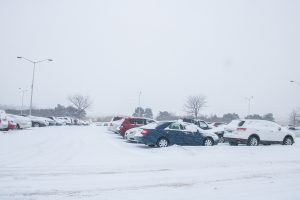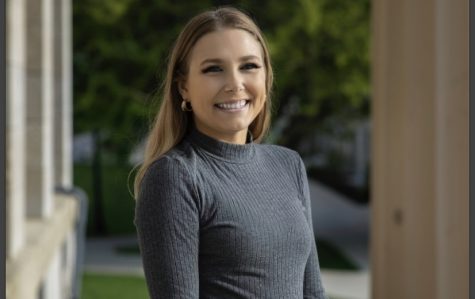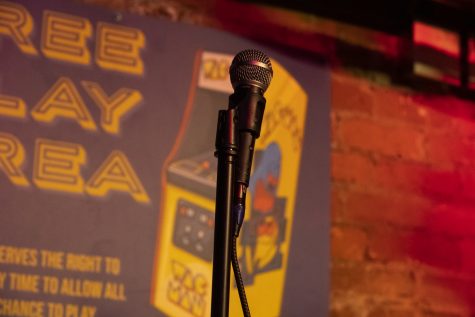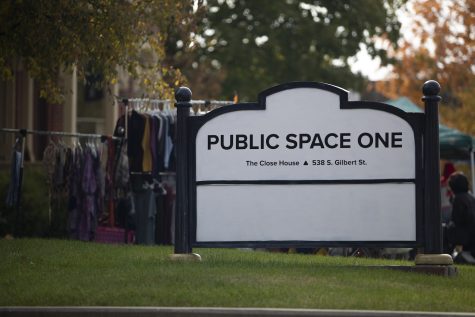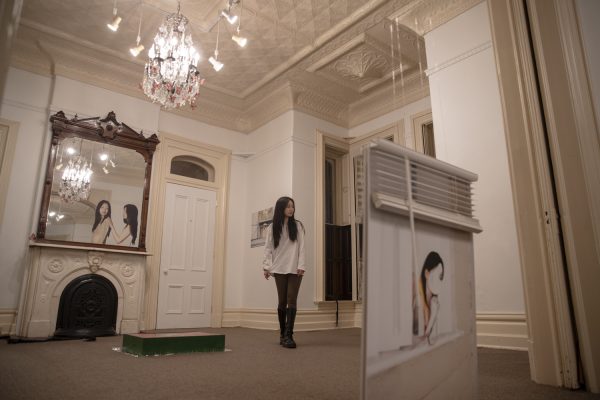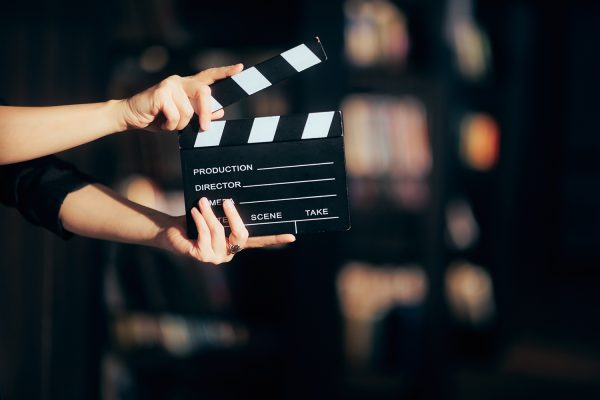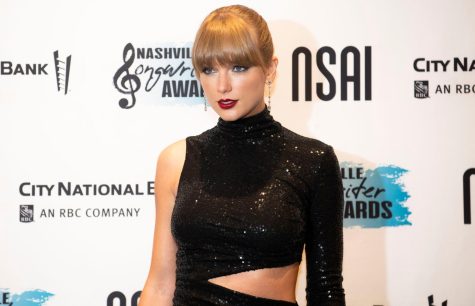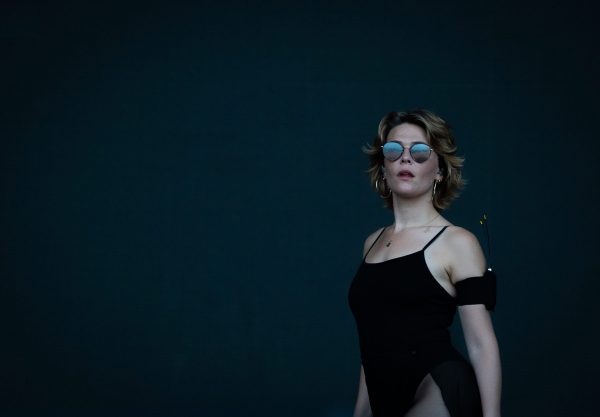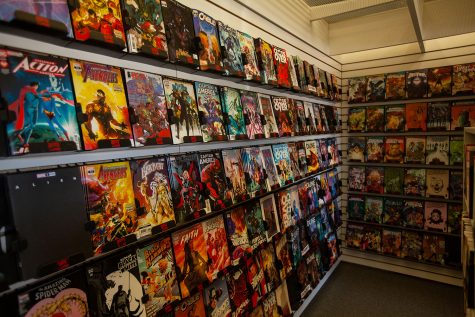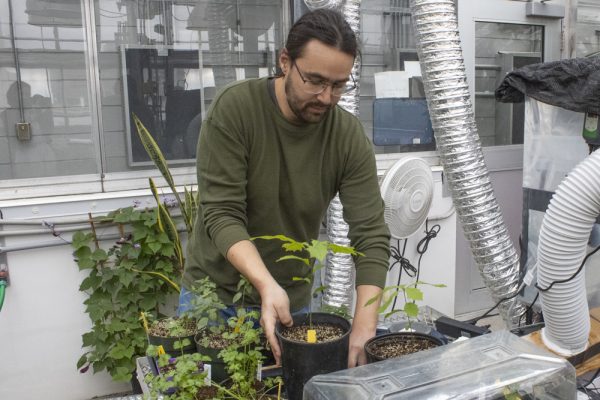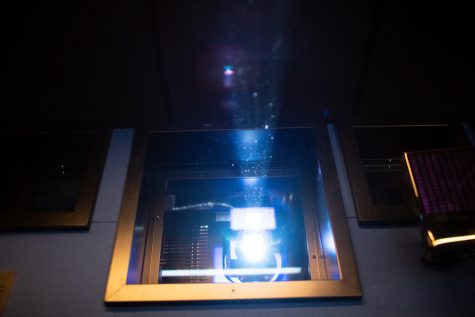UI alumna turns oral histories of Muslims in Iowa City into a play
UI alumna Margot Connolly will present a reading of her play, “My Daughters are My Writings” in the Old Capitol Museum today.
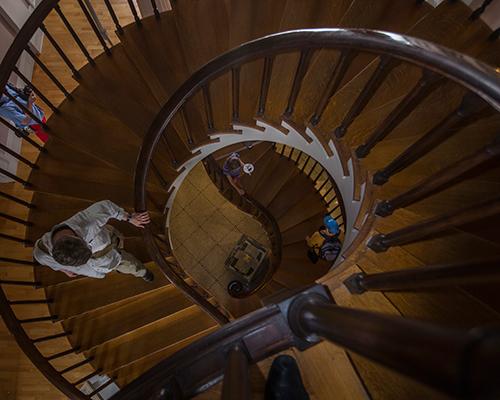
People walk down the spiral staircases of the Old Capitol on Sunday, July 3, 2016.
February 14, 2019
Thirty-five years ago, a Sudanese political leader was charged with renouncing the religious beliefs of Islam, convicted, and sentenced to death, causing nearly 1,000 of his followers to flee their home country of Sudan. Several ended up in Iowa City, bringing years of untold history with them.
In the spring of 2018, two University of Iowa graduate students interviewed seven Iowa City residents — founding members of the Republican Brotherhood, a religious and political movement founded by Mahmoud Muhammed Taha in the 1950s.
Now, the stories they were told have been transformed by UI alumna Margot Connolly into a play. The UI African Studies program and the Outreach and Engagement Office will present the première staged reading of the play My Daughters Are My Writings,” at 4:30 p.m. Feb. 17 in the Old Capitol Senate Chamber.
Nyaradzai Chisaka and Decent Ndongwe, graduate students in the UI History Department, documented the personal stories and perspectives of Iowa City residents who fled from Sudan after the disbanding of the Republican Brotherhood.
Because his ideas conflicted with traditional interpretations of the Quran, Taha was executed in 1985, Ndongwe said. Many of his followers were forced to flee the country to avoid religious persecution.
“Many of those founding members ended up here, in Iowa,” Ndongwe said.
Connolly, a UI alumna and playwright, combined Ndongwe’s and Chisaka’s collection of oral histories and content from the book Modern Muslims: a Sudan Memoir, by Steve Howard, into a play about the positive aspects of the Republican Brotherhood.
Howard, a professor and researcher at Ohio University School of Media Arts & Studies, said he wanted to emphasize the positive history of the brotherhood and how Taha advocated for unity and gender equality in the Islamic faith.
RELATED: Islam Awareness Week hopes to increase understanding of the religion
“I wanted to write a book that reflected a progressive or positive view of a social movement in the Muslim country that wasn’t oppressive toward women,” he said. “Because I thought there should be a book on the library shelf that wasn’t just about the negative, oppressive, or violent or extremist views that a lot of Western media resonate.”
Connolly’s play reflects his views, capturing the prominence of women in the brotherhood and Taha’s social beliefs.
“It’s a phenomenal story about the women of the Republican Brotherhood,” said Britny Horton, a graduate student in the Theater Department. “It took a lot of research. I wanted to do the story justice, as a director and as an actor.”
Horton plays Muhsinah in the play, a passionate, curious, and outspoken character who tells the story about growing up as a woman in Sudan. Although she said she was nervous to accept the role of both actor and director of the play, she fell in love with script immediately.
“What Margot has been able to do in just 12 pages is really develop a roller coaster of sorts,” Horton said. “She teaches you; she connects with you.”
Chisaka said telling the story of Sudanese refugees in Iowa means revealing a history few people know.
“We felt this was an important story to tell because these people, they’re not really visible in the public eye,” she said. “If you ask people in Sudan about the Republican Movement, most would not know what you’re talking about.”



